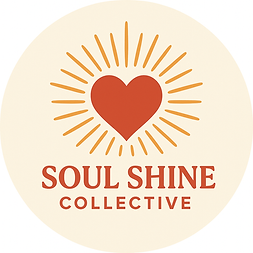A message from Banana
- A Soul Shine Member

- Jun 25, 2025
- 2 min read
Updated: Jul 8, 2025
A listening ear, identification, and warmth go a long way — and this is something that is missing from many services. I feel like we've reached a point where we’re separating ourselves so much, when in reality, we have far more in common than we do differences.
I have worked in drug and alcohol services for years now, and it used to be taboo to tell the people I was supporting that I was in recovery myself — as if that could somehow be weaponised against me. We still treat drug and alcohol addiction as something to be ashamed of.
It wasn’t common practice to share anything personal with the people you were supporting, because it was seen as unprofessional. But what is unprofessional about saying, "I was in an abusive relationship before. I’m not anymore. There is hope. We can do this together."?
I believe many service policies around self-disclosure are a false pretense — framed as protection for staff and clients — but in truth, they’re often rooted in shame and a lack of understanding around addiction, and around the diversity of lived experience.
I became abstinent when I was 20 years old, after seven years of heavy drug and alcohol use that led to homelessness and hospital admissions. I was involved with mental health services that told me what they thought was wrong with me, medicated me, and then put me on waiting lists. I had workers tell me that the people I was in relationships with were unhealthy and could cause me harm — but I thought they didn’t know those people, they didn’t understand.
I had drug workers teaching me how to use more “safely,” but it all felt theoretical. Everything was based on others telling me what to do, based on what they’d learned about someone else like me — but it wasn’t me.
What helped me was people sharing their experiences. Telling me their stories. Letting me know I wasn’t alone, and that things could be different.
Storytelling is such a powerful tool — and it’s not used enough.
That’s why, at Soul Shine Collective, the emphasis is on equality, unity, and identification. We've been there. I have just as much to learn from you as you do from me — it’s just different things.
There is no shame in our survival. There is inspiration in how we learn to thrive.
Addiction, poor mental health, loneliness, codependency, eating disorders, social anxiety — they’re often offshoots of something deeper: low self-esteem, lack of belief in ourselves, fear of abandonment, fear of rejection. So how do we find connection by addressing what’s underneath the ways we act out?



Comments